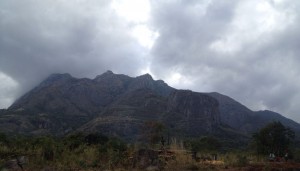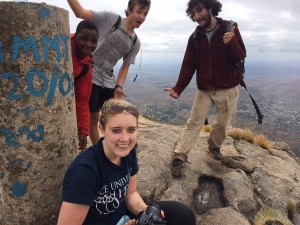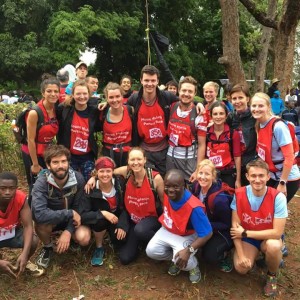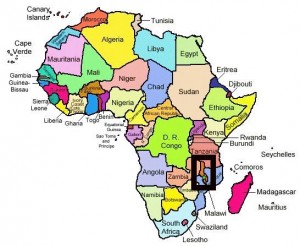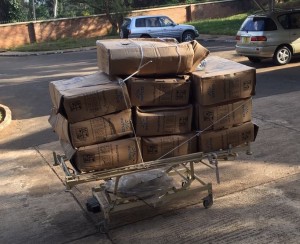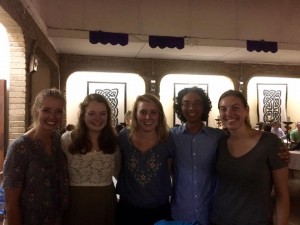I’m not starting this blog post with any intention of having a profound thought at the end- rather I wish to describe likely our most Malawian experience yet. First I must introduce you to Freeman (he’s a free man as he told us many times). Freeman works in the operating theater as an assistant at QECH and his favorite color is red. Conveniently, his favorite football (read- soccer) team is the Blantyre Bullets whose colors are, yes, red and white. Thus, Freeman regularly sports red sunglasses as he rides his candy cane status bicycle with matching helmet. Safety first.
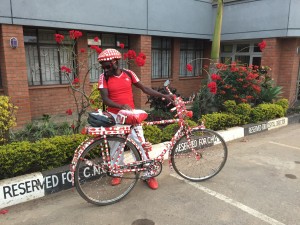
Freeman is also a professional “azungu** wrangler” to use Elizabeth’s phrase. He pushed us onto a minibus and herded us down the slope towards the stadium gates, reminding us all the way, “No money in your back pockets” and “where are your phones?” To this second question I held up my candy bar phone and received a chuckle as he agreed no one would try to take it from me. With hair newly decorated with red and white ribbons, we were ready to shove our way through the iron gate into the sunny boisterousness of the stadium.

As we paraded across the stands, the shouting got louder, and Freeman was loving it. He walked last in line so he could keep us all in his sights and waved his hands over his head welcoming the noise like an excited olympic athlete in the opening ceremony. We found some seats, bought some lollipops, and settled in to watch the match.
The teams were both good and it was a tight game. Every time there was a shot on goal an eeeee-AHHH would follow the ball’s path. Punctuating the shouts from the crowd, and Freeman’s advice to the players “Foward, forward! Go now!” was the “Ssssss, ssssss, ssssss” of people selling everything from tangerines to hardboiled eggs to chips (aka crisps) and sodas to earbud headphones. After a relatively early lead taken by Lilongwe, we got a penalty kick at the beginning of the second half to tie the game 1-1. The crowd erupted. Freeman initiated a group hug and then danced to the music of the crowd. About ten minutes before the end of the game, a second goal slid by the keeper sealing the 2-1 win, Blantyre Bullets.
It was an exciting end to a great game.
After the game, I realized how glad I was that we had won. All of the stores close to the stadium were closed (we had to get pretty creative about dinner) and I realized that in the event of a loss, there would be a lot of drunk and very angry people. I’m glad we won.
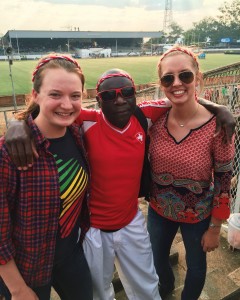
**Azungu is the plural of muzungu meaning foreigner
